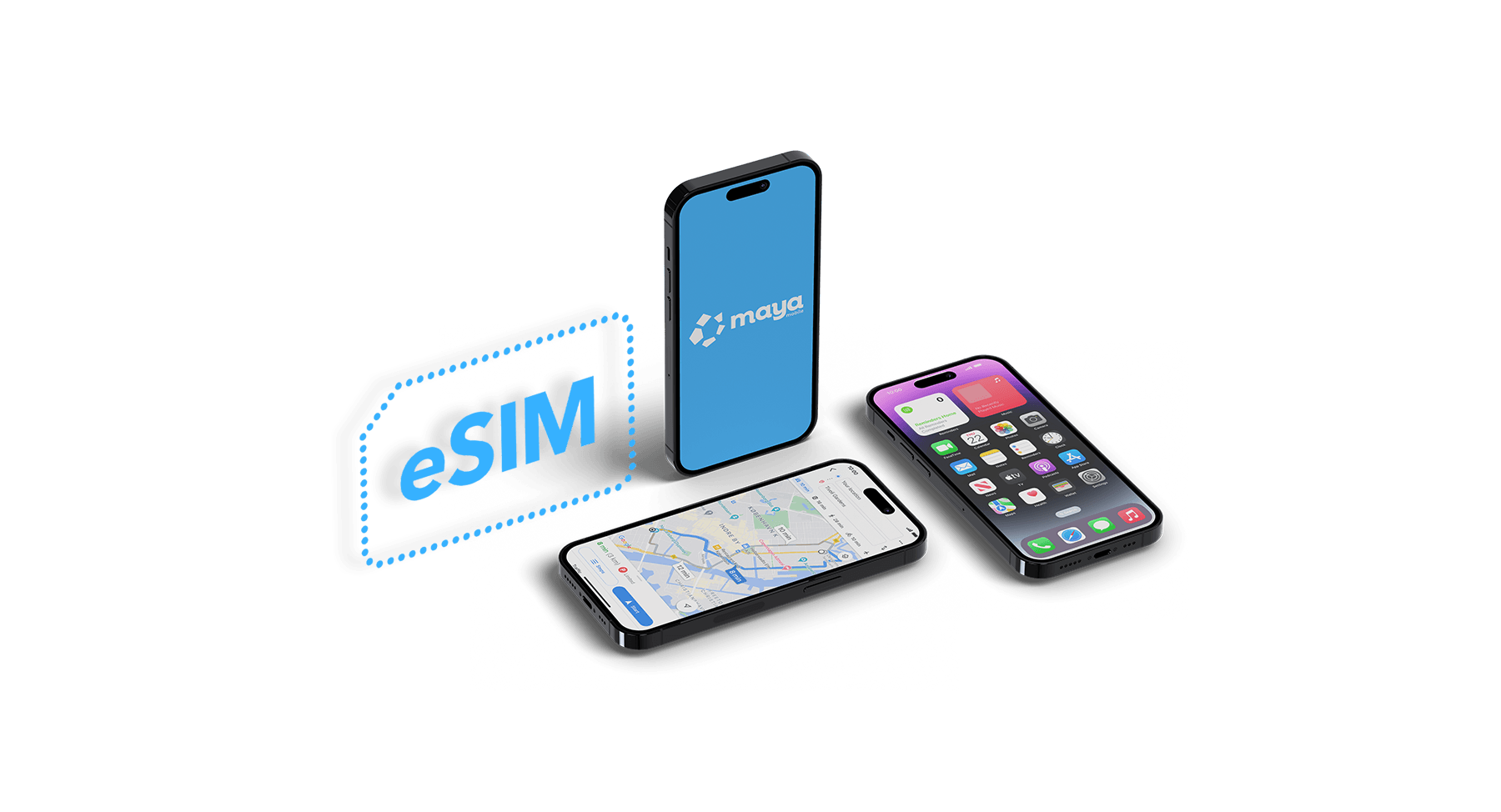
Out of Data, Out of Luck: Why Losing Internet Abroad Feels Like Losing Your Wallet
Imagine this: you’ve just landed in Rome, the sun is setting over terracotta rooftops, and your first instinct is to pull out your phone. You want to grab an Uber, check the walking route to your hotel, and maybe even send a quick “made it!” message back home. But instead of that comforting buzz of 5G bars… nothing. Zero data. No maps. No WhatsApp. Just the spinning wheel of doom.
That sinking feeling? It’s the same knot in your stomach you’d get if you reached for your wallet and realized it wasn’t there. Because in 2025, being cut off from mobile data while traveling is more than an inconvenience—it’s a full-blown travel crisis.
Data Is the New Currency
Think about what you actually spend when you travel. Sure, you swipe your card for train tickets and hotel rooms, but your real lifeline isn’t tucked into your pocket—it’s running through your phone.
- Navigation: Google Maps has replaced guidebooks.
- Communication: Messaging apps are your instant tether to family, friends, and even your Airbnb host.
- Payments: Contactless taps and QR codes often need a data connection to process.
- Safety: Translation apps, emergency numbers, or even checking the local weather before heading out.
When you run out of data, you lose access to all of that. Suddenly, the digital wallet of your trip—the one holding directions, bookings, and connection to the world—just got stolen.
The “Oh No” Moment
If you’ve ever run out of data abroad, you know the emotional rollercoaster:
- Denial: “Maybe the signal’s just weak.”
- Frustration: “Why did I buy that tiny 1GB plan?!”
- Panic: “Wait… how do I get to my hotel now?”
- Desperation: Wandering into cafés hunting for Wi-Fi, begging strangers for directions, or—worst of all—paying insane roaming fees just to load one map.
It sounds dramatic, but it really is a crisis. Travel throws enough curveballs at you—delayed trains, language barriers, overpriced lattes in tourist zones. The last thing you want is to also feel like you’ve been blindfolded in a new city.
Data Loss Is Loneliness Too
Running out of data doesn’t just block logistics—it blocks connection. One of the most underrated travel joys is sharing the little things as they happen: the unexpected street performer in Barcelona, the perfect croissant in Paris, and the way the streets of Tokyo buzz at midnight.
Without data, those moments stay trapped in your head until you can find Wi-Fi hours later. And by then, the spark is gone.
It’s not about bragging rights—it’s about staying tethered. Sharing moments as they unfold makes you feel close to your people back home, even if you’re thousands of miles away. When that’s cut off, travel can suddenly feel isolating.
The Wallet Analogy Goes Deeper
Why does losing data abroad feel so much like losing your wallet? Because both hit the same nerves:
- Control: Without your wallet, you can’t pay. Without data, you can’t plan.
- Identity: Your cards hold your name. Your phone holds your digital identity.
- Security: Both protect you from chaos. One covers your money, the other your sense of direction and safety.
- Dependence: You don’t realize how much you rely on either until they’re gone.
A wallet loss sparks financial fear. A data loss sparks emotional and practical chaos. Different, but equally gutting.
The Wi-Fi Mirage
Of course, the first instinct when your data runs out is to chase Wi-Fi like it’s water in a desert. Airports, cafés, hotels, and even random stores with that magical “Free Wi-Fi” sticker.
But Wi-Fi abroad is rarely the savior it promises to be:
- It’s unreliable—that “free” signal may crawl at dial-up speed.
- It’s unsafe—public Wi-Fi is a hotspot for hackers.
- It’s inconvenient—you have to constantly re-login, stay put in one location, and cross your fingers the connection doesn’t drop mid-payment.
Relying on Wi-Fi when traveling is like trying to budget your trip by eating only free samples. It works here and there, but it’s not sustainable.
Stories From the Road
- The Lost Friend: A traveler in Bangkok ran out of data mid-day, couldn’t message his group, and spent three hours wandering temples trying to find them. He finally gave up and went back to the hotel alone.
- The Missed Train: In Berlin, a couple couldn’t load their QR train tickets when their data expired. They had to scramble to buy new ones at the kiosk, missing their departure and paying double.
- The Silent Crisis: A woman in Mexico had her bag stolen and couldn’t call for help immediately because she had no data. By the time she reached her hotel’s Wi-Fi, hours had passed.
None of these stories involve losing actual money, yet the emotional weight was identical: stress, helplessness, and regret.
Why It Hits Harder Abroad
At home, running out of data is annoying but survivable. You can pop into your provider’s app and top up instantly, or just head home and connect to Wi-Fi.
Abroad? Totally different ballgame.
- Topping up is confusing when you don’t speak the language.
- Plans are expensive—roaming fees can still be brutal.
- You’re constantly on the move—making it harder to stop and sort it out.
Every small delay feels amplified when you’re in unfamiliar territory. What’s a five-minute annoyance at home becomes a five-hour disaster abroad.
Protecting Your “Digital Wallet”
The good news? Unlike losing your actual wallet, running out of data is preventable. A little foresight saves a lot of stress.
- Go Big on Data: Don’t skimp on that extra GB. It’s always worth it.
- eSIMs & Local SIMs: Flexible, easy to top up, and way cheaper than roaming.
- Offline Backups: Download offline maps, translation packs, and boarding passes before you leave Wi-Fi.
- Data Management: Keep an eye on background apps draining your gigabytes—auto cloud sync and video autoplay are sneaky thieves.
Treat your data plan the way you treat your wallet: something to check, protect, and prepare before you leave home.
The Emotional Lesson
Ultimately, the panic of running out of data isn’t about missing Instagram scrolls—it’s about losing freedom. Travel is already a leap outside your comfort zone, and mobile data is the parachute that makes that leap exciting instead of terrifying.
When it’s gone, you’re stuck. Stripped of the independence you carefully planned for. That’s why it hits so deeply—because it’s not just about connectivity. It’s about confidence.
Final Thought
Next time you’re packing for a trip, ask yourself: would you ever leave home with an empty wallet? Of course not. So why risk stepping into another country without enough data?
Running out of data abroad doesn’t just ruin your day—it can derail your entire trip. Because in today’s world, those gigabytes aren’t just numbers on a screen. They’re your guide, your translator, your safety net, and your link to home.
So, protect your data the way you protect your wallet. Because losing either one? Feels exactly the same.












